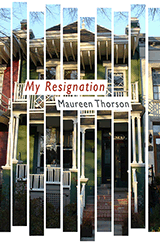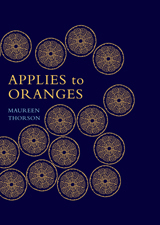
Fish, You Bird, by Phillip D. Ischy and Martin Rock (Pilot Books)—These collaboratively-written tanka are presented in a “maze-book,” whose unfolding leave it unclear how exactly one should plot one’s path through the work. Far from being a problem, this uncertainty underscores the allusive and elusive nature of the work itself, in which images of fish, birds, sleep, and death, and words combine and recombine into a sense of dreamed meaning, shared out over many nights: “Wind holds up his hands:/in his palms, albatrosses/like small pocketknives./Flight is a winged tree (feathers/its leaves)bending in the wind.
Matchbook, Vols. 2 & 3 (Small Fires Press). Putting a magazine in a matchbook gives you a bit more than a square inch of working space, but Matchbook’s poets use it well in short-lined, compact versus that focus on leaps of meaning and sensation – a quickness of realization that characterizes the best short verse, mixed here with the occasional short pun of a poem. And there’s art as well: Volume 2 features scratch and sniff stickers for various emotional states, while volume 3 contains letterpressed images by Cherie Weaver. And a not unimportant consideration for this particular lover of commercial ephemera is the fact that we’re talking vintage matchbooks here. It’s hard not to love a journal bound, as my copy of Volume 3 is, in a matchbook from Homelite Chain Saws (“MORE POWER PER POUND THAN ANY OTHER SAW”).
The Book of Frank, by CA Conrad (Wave Books) – It seems hardly fair for me to review a book like this, given that anything that follows a single character is totally up my alley, and so I was a ready audience for this book, which follows the trials, tribulations, and miscellaneous adventures of he who is known only as Frank. But there has to be a reason I like this kind of thing – the creation of a character, the joker to the poet’s narrative straightman, frees up all kinds of revelations, allows a sort of pressurized field to develop between the creator and the created, so they reverse places, find new ground, and above all EXPAND. Frank is what? A white trash angel? A victim of circumstance? An act of God? Frank refuses to be one thing; he chooses no identity except protagonist and so creates and is created in a work that is alive and uncontained.
Play, by Liz Waldner (lightful press). – A book written entirely in dialogue between self and self, between the poet, and the voice inside the poet’s head. The different voices are signaled entirely by the alteration between lines in plain text, and lines in italics. As the title indicates, the dialogues are a form of play; indeed, sometimes the two voices jostle with the quick wit of Shakespearean characters punning their way through a scene. Arch and tender by turns, the voices recall earlier poems, pick up lost threads of their conversations, and think out loud together, rendering verdicts more emotional than coldly logical, well-tuned and well-balanced, the outcome of a lively intelligence, an open mind.
Adam Robison and Other Poems, by Adam Robinson (Narrow House). This is one of those books that is totally fun to read, but the whole time there’s a little voice in the back of my head saying, “Maureen, why are you reading this! This is like poetry fruit loops! You should be reading something more . . . boring.” Or “harder,” at any rate, where harder is defined as “difficult to follow.” Conversational, distracted, with historical/cultural references bouncing off each other and becoming fodder not for a thesis but for more distracted and distractable conversation, this should be difficult to follow, by all rights, but it goes down easy, in a mixing bowl of commercial jingles and party anthems, Kierkegaard and baseball references, and of course Robinson is ahead of me anyway, writing “My poems lack depth and a complexity in which the reader can invest.” So, is the joke on me? Is this a joke? I DEMAND SATISFACTION…uh, er, right. Just calm down and let it happen, Maureen. You can't stop the conversation, and you shouldn't try. Whew.
Brave Men Press Coin Library, containing chapbooks by Ben Kopel, Joshua Marie Wilkinson, and Lily Brown (Brave Men Press). If you are looking for book arts at their finest, Brave Men Press is putting out some of the prettiest – and in some cases, downright amazing in terms of the workload involved – stuff out there. The Coin Library consists of three chapbooks contained in their own slipcase, along with a limited edition drypoint etching of the Brave Men logo. Although all the work is solid, I felt most drawn to Lily Brown’s chapbook, Being One, with lines like “We become secretaries /of the sun,/washing its stains with bluing,” and poems that proceed with a kind of inexorable logic, step by step, but lead to conclusions that promise further depths, not neat resolution.



